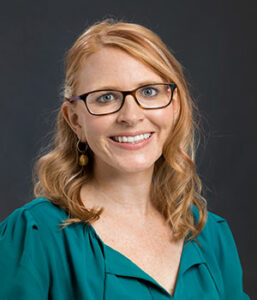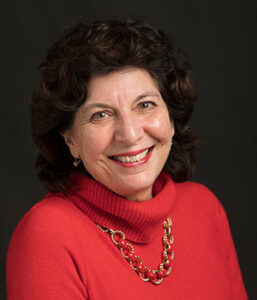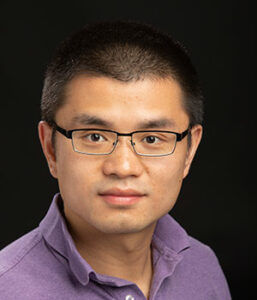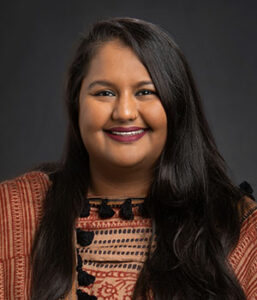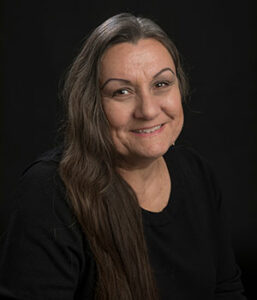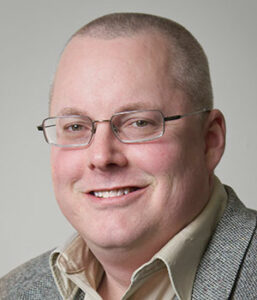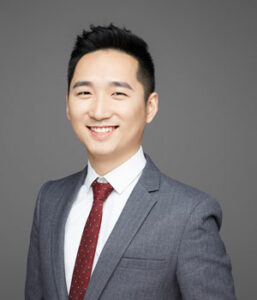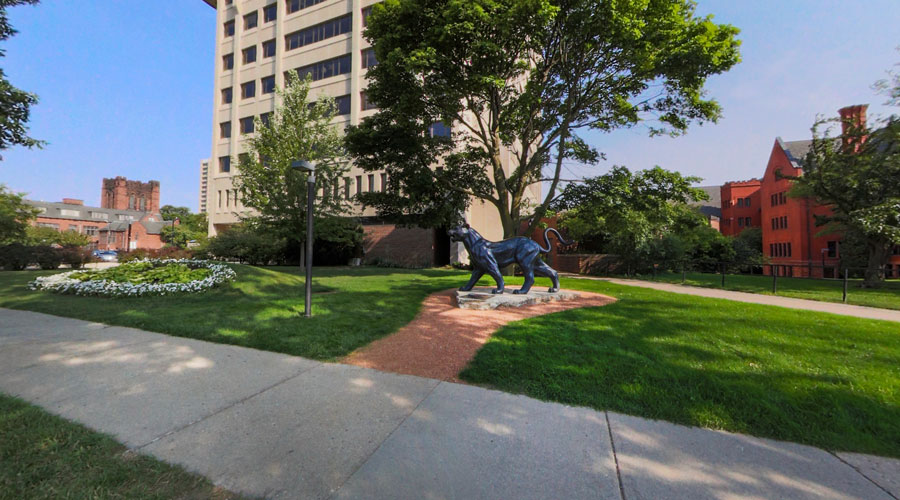Educational Psychology: Counseling Psychology PhD
UWM’s PhD specialization in Counseling Psychology follows a scientist-practitioner model that integrates theory, practice and research to give you the scientific knowledge and skills needed to work with multicultural populations across diverse settings.
Our program – accredited by the American Psychological Association (APA) – sets up students for success. Placement rates for our graduates is 100%, and 87% of our graduates are licensed psychologists in various states.
Program Type
Doctoral
Program Format
On Campus
Why Choose Our Program?
- Commitment to diversity: In 2013, the Department of Educational Psychology won the American Psychological Association’s prestigious Bersoff Presidential Cultural Award for its success in recruiting and graduating doctoral students from racial/ethnic minorities as well as other countries.
- Location: We’re located in the state’s economic, cultural and career capital, just 10 minutes from downtown Milwaukee and 90 minutes from Chicago.
- Career prep: Since 2008, 88% of our counseling students were matched in internships, compared with the national average of 80%. Most years, it’s 100%.
- Research: Work alongside internationally known faculty as an integral member of their research teams. You may have the opportunity to present your work at national conferences.

Our PhD students are expected to conduct research and to advance the science of counseling psychology through scholarly inquiry. You’ll learn how to apply your scientific knowledge using qualitative and quantitative methodologies. Our program, which is accredited by the American Psychological Association through 2029, will prepare you to work as a counseling psychologist in a variety of settings, including universities, hospitals, mental health clinics and private practice.
Note: Due to pending and recent retirements, and funding restrictions that prevent post baccalaureate students from serving as teaching assistants, most faculty will not consider admitting students for 2024 and into the Fall 2024 semester who do not already have a master’s degree.
Counseling Psychology Handbook
For additional information about the program, see the Counseling Psychology PhD Program Handbook (PDF).
Student Data
Student Admissions, Outcomes, and Other Data (PDF)
Advising
We will assign you a temporary advisor when you are admitted to the program. Once you enter the program, you are free to choose a new advisor who will be the chair of your dissertation committee, or continue with your assigned advisor.
Stipends
Stipends for teaching or research assistantships at or above 33% time include tuition remission. Stipend salaries vary according to type of assistantship (e.g. teaching, research) and type of student (doctoral, dissertator). For an academic year (nine month) appointment for 2023, stipends are $15,000 for 50% time assistantships and $9,900 for 33% time assistantships.
The following table indicates the type of support given to each cohort of students for the 2022-23 academic year. Assistantships are allocated based on availability of positions, with priority given to first year students, then second year students, and then third year. Students in the counseling psychology program have successfully applied for assistantships in other schools and colleges. After the third year in the program, students are strongly encouraged to seek assistantships through faculty grants or off-campus sources.
| Cohort Year | Fellowships | Assistantships | Off-Campus Employment | Unfunded |
|---|---|---|---|---|
| 1 | 0 | 5 | 0 | 0 |
| 2 | 0 | 5 | 0 | 0 |
| 3 | 0 | 6 | 0 | 0 |
| 4 | 1 | 4 | 0 | 0 |
Learn more about the Graduate School’s current assistantship salary schedules.
Counseling Psychology Student Association
Open to all doctoral students in the Counseling Psychology PhD Program, CPSA focuses on student advocacy, professional development, and socialization/peer-to-peer mentorship. Members are also active at the national level (e.g., ACA, APA, APAGS). We encourage all students to get involved.
Career Resources
- Careers as a Counseling Psychologist
- Society of Counseling Psychology
- American Psychological Association
- Licensing Information
The Graduate School provides a range of resources for student professional development on its website.
Program Requirements
If you already have a master’s degree, the program involves three years of coursework, a year of dissertation and a year of internship.
Students are required to take 15 credits of courses toward discipline-specific knowledge (psychological foundations), 18 credits of practicum, 13 credits of statistics and 12-18 credits of courses designed to provide profession-wide competencies as a counseling psychologist (Ethics, Interventions, Advanced Multicultural Counseling, Vocational Psychology, Supervision/Consultation and Research).
In keeping with our scientist-practitioner model, we require all students to participate on a faculty member’s research team for two years, registering for ED PSYCH 838 for 12 credits. Many students participate on more than one faculty member’s team, and most students stay involved in research for the entire four years that they are on campus.
Our program is recognized by the state licensing board, and you will be eligible for licensure as a psychologist once you complete the doctorate and the post-doctoral hours required by the state and successfully pass the national licensing exam and state jurisprudence exam.
Application Process
All applications must be completed fully online through the UWM Graduate School’s Panthera Application System.
You should plan to apply a year before you intend to start. Be sure to pay careful attention to the program’s specific deadline.
Final Deadline for Fall Admission: Final application deadline is Dec. 1 for Fall admission.
Applicants who are invited for interviews will be notified by early January. Applicants will be notified of admissions decisions by mid-February.
- The program requires three letters of recommendation. These letters must be submitted through the application’s electronic recommendation feature by the recommenders themselves. Letters uploaded or sent by the applicant will not be accepted.
- Applicants are also required to submit a writing sample completed within the last five years.
Faculty
- Associate Professor, Educational Psychology
- Program Director, School and Clinical Mental Health Counseling, MS
- autin@uwm.edu
- Enderis Hall 791
- University Distinguished Professor, Educational Psychology
- Mary and Ted Kellner Endowed Chair of Educational Psychology, Educational Psychology
- Program Director, Counseling Psychology, PhD
- nadya@uwm.edu
- 414-251-8328
- Enderis Hall 773
- Assistant Professor, Educational Psychology
- nikalje@uwm.edu
- 414-251-7057
- Enderis Hall 793
- Associate Professor, Educational Psychology
- lrouse@uwm.edu
- Enderis Hall 729
PhD Students
- PhD Student, Educational Psychology: Counseling Psychology
- lcoakley@uwm.edu
- Enderis Hall
- PhD Student, Educational Psychology: Counseling Psychology
- PhD Student, Educational Psychology: Counseling Psychology
- vandyk28@uwm.edu
- Enderis Hall
- PhD Student, Educational Psychology: Counseling Psychology
- bzeng@uwm.edu
- 262-307-6345
- Enderis Hall
Kelsey Autin, PhD, Assistant Professor
University of Florida
Dr. Autin’s research interests include how people find fulfillment in their occupations and how this relates to overall well-being. Within this, she focuses on how people’s identities along with their sociopolitical contexts shape their beliefs about their freedom of work choice and barriers to obtaining decent work.
Nadya A. Fouad, PhD, ABPP, University Distinguished Professor and Mary and Ted Kellner Endowed Chair of Educational Psychology
University of Minnesota
Dr. Fouad’s research interests include cross-cultural vocational assessment, career development, interest measurement, role of race and social class in development, and cross-cultural counseling. Dr. Fouad is board certified in counseling psychology, and a licensed psychologist in the State of Wisconsin.
*Note: Dr. Fouad is not taking on any new doctoral advisees at this time.
Xu Li, PhD, Assistant Professor
University of Maryland, College Park
Dr. Li’s research interests include (1) the process and outcome of individual and group psychotherapy, particularly in cross-cultural and multicultural contexts, (2) the development and training of therapists and the measurement of therapist competency, and (3) the career development and mental health of college students. With a bachelor’s degree in mathematical sciences, Dr. Li is keenly interested in exploring the use of advanced and novel quantitative methods in counseling psychology research.
Ankita Nikalje, PhD, Assistant Professor
Purdue University
Dr. Nikalje’s research focuses on systemic issues within the South Asian diaspora and their impact on lived experiences and mental health. She is particularly passionate about the issue of casteism and how caste discrimination continues to be experienced on an institutional, interpersonal and internalized level outside of South Asia. She has theorized Caste Critical Theory (CasteCRIT) and is developing instruments to measure the impact of caste in the diaspora. Similarly, her research also focuses on the impact of colonization, especially as it relates to internalized colonization or colonial mentality among South Asians.
Leah Rouse, PhD, Associate Professor and Electa Quinney Scholar
University of Wisconsin-Madison
Dr. Rouse’s research interests include trauma psychology, suicidology and mental health issues facing corrections, EMS and military populations, as well as cancer patients, survivors and their families, and American Indian communities. She works from a qualitative and Indigenous framework in research and practice. Dr. Rouse is board certified in counseling psychology, and a licensed psychologist in Wisconsin.
Stephen R. Wester, PhD, ABPP, Professor
University of Florida
Dr. Wester’s research interests include male gender role conflict, multicultural expressions of masculinity, gender and emotion, and counseling men, as well as the training of counseling psychologists and counseling supervision. Dr. Wester is board certified in counseling psychology, as well as a licensed psychologist in Wisconsin.

